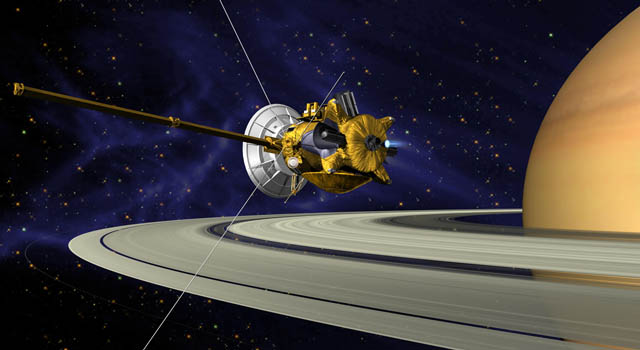NASA Firing Sparks Employment Ethics Question

You've may have heard by now about the NASA employee who claims he was fired for sharing his beliefs about intelligent design with his NASA co-workers. It begs the question: It is ethical to fire an employee for sharing his or her religious or political beliefs at work?
In that lawsuit, David Coppedge, a 15-year veteran at NASA's Jet Propulsion Laboratory (JPL), is alleging that the California Institute of Technology, which manages the JPL for NASA, terminated him over his belief in intelligent design.
According to a Livescience report, Coppedge worked for the JPL as a computer specialist and led a team on a mission that explored Saturn and its moons. While in that position, Coppedge claims he faced discrimination in the workplace because he vocalized his belief in intelligent design.
Livescience describes intelligent design as "the idea that the universe is too complex not to involve an intelligent creator."
Coppedge's belief in that idea led him to hand out DVDs on the topic to his co-workers. According to the lawyers for the California Institute of Technology, Coppedge received a warning in writing because of complaints by co-workers. In 2009, Coppedge lost his team lead title and last year he lost his job, along with 246 other JPL employees, because of budget cuts, according to the California Institute of Technology.
[The 10 Most Ridiculous Lawsuits of 2011]
Those events built into what has become the lawsuit that is scheduled to begin Tuesday morning (March 13).While the legal issues will be resolved by the courts, the situation raises an interesting dilemma about how employers should deal with employees who are open and outspoken with their beliefs, particularly if they have been warned of criticism by co-workers.
Get the Space.com Newsletter
Breaking space news, the latest updates on rocket launches, skywatching events and more!
According to James Craft, a professor of business administration at the Joseph Katz Graduate School of Business and College of Business Administration at the University of Pittsburgh, employees are protected from discrimination in employment decisions based on their religious beliefs under Title VII of the Civil Rights Act of 1964.
"It would be illegal to discipline or terminate someone from an organization just because that person holds different religious beliefs or other protected characteristics," Craft told BusinessNewsDaily. "In a context where there is freedom of religion, political beliefs, etc., it would be ethically questionable to lay off a worker simply because they do not hold those dominant organizational views."
The exception, said Craft, comes when employees are warned about the impact that their beliefs have on other workers. This move, however, should only come after repeated discussions with the offending worker and numerous complaints by workers who feel these actions are infringing on their ability to work.
"On the other hand, if the expression of those beliefs is interfering meaningfully with the organization’s purpose and activity, then, after appropriate warnings and counsel, it would appear to be pragmatic and ethical to dismiss the individual from the organization," said Craft.
"In this case, it appears that Coppedge consistently engaged his co-workers in discussions that related to religious issues (i.e., intelligent design) and handed out DVDs on the topic," said Craft. "If it is determined that the actions by Coppedge in promoting his religious ideas are resulting in complaints by co-workers and that they are interfering with work in a significant way and infringing on the rights of these co-workers (creating a hostile environment), then the organization, through human resources, will take action."
Reach BusinessNewsDaily staff writer David Mielach at Dmielach@techmedianetwork.com. Follow him on Twitter @D_M89.
Join our Space Forums to keep talking space on the latest missions, night sky and more! And if you have a news tip, correction or comment, let us know at: community@space.com.

